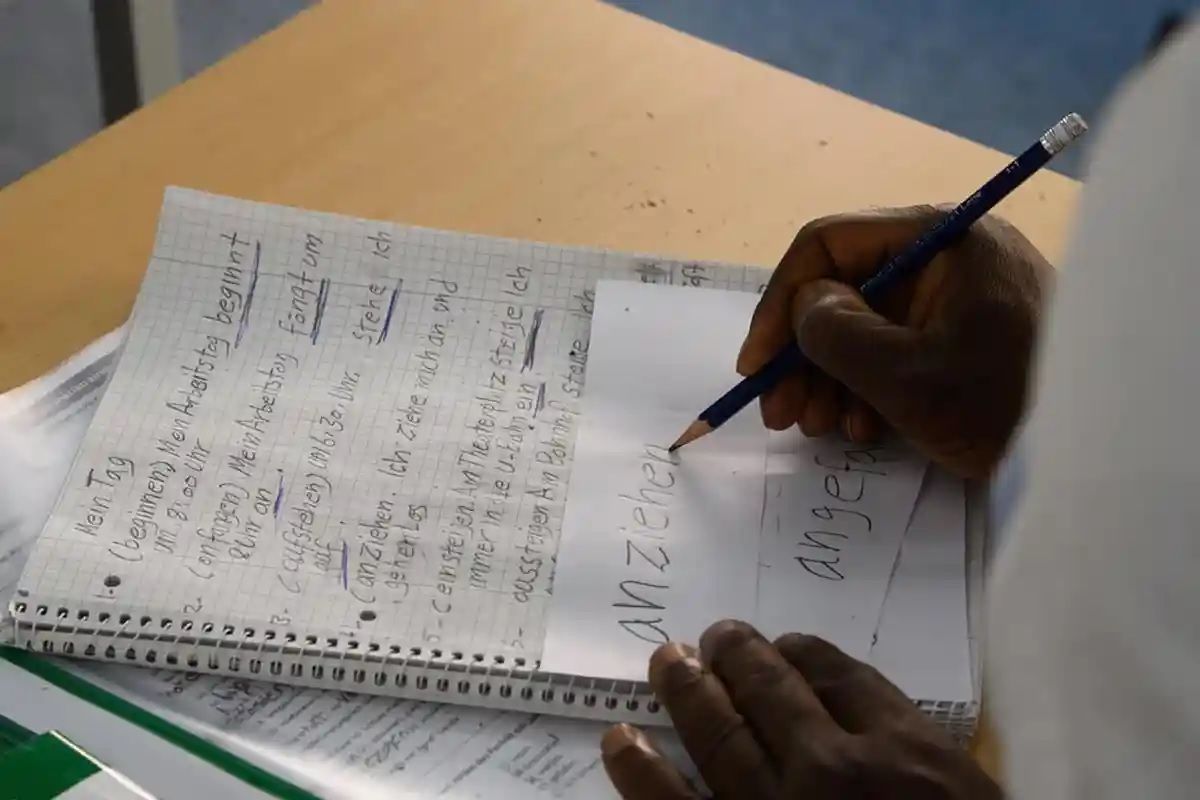To meet the basic requirements for obtaining residency and citizenship in Germany, one must first attain a B1 level of proficiency in the German language. However, how much time is needed to learn the German language?
Related topic: Compulsory language tests to be introduced for the new school year
It's important to note that to expedite the citizenship application process, it is necessary to demonstrate a higher level of proficiency in German - B2 (or potentially C1 in the future).
How much time does it take to learn the German language?
Proficiency in the German language is assessed according to the Common European Framework of Reference for Languages (CEFR).
You might believe that you already have a B1 level of proficiency in German, but you need to provide official accreditation to prove this.
If you are starting to learn the German language from scratch and are interested in knowing the timeframe for achieving this level of proficiency, we will tell you how to reach this level.
What does a B1 level of proficiency in the German language look like?
According to CEFR, if you have a B1 level of proficiency in the German language:
- You can handle most situations while traveling in various regions where German is spoken.
- You can describe your impressions of various events and meetings.
- You can understand and discuss basic aspects related to your immediate circumstances - family, school/work, and environment.
Grammar at this level includes:
- More complex German phrases - verb placement and word order.
- Modal verbs - dürfen, können, mögen, müssen, sollen, and wollen.
- Genitive case - for example, das Haus meiner Mutter (my mother's house).
- Passive verb forms - "mein Bruder bereitet das Essen zu" (My brother is preparing the food) turns into "das Essen wird zubereitet" (The food is being prepared).
- Imperfect tense - er las ein Buch (he read a book).
As a general rule, you should know 2400 "common" German words.
These typically include greetings (Hallo, auf Wiedersehen) and frequently used nouns (die Familie, das Essen).
How is this different from A1 or A2 level?
A1 is the lowest CEFR level, assuming you have basic grammar skills, know sentence structure, and can engage in basic conversation.

A2 expands on this topic, particularly in terms of understanding grammar. You should have a good grasp of the accusative case, prepositions with the dative case, reflexive and separable verbs, simple future tense (ich werde reisen or I will travel), and past tense (ich habe Fußball gespielt or I played football).
How much time will it take?
Language learning is highly subjective and varies in duration for different individuals.
For instance, learning the German language, if you already know another Germanic language such as Dutch or Danish, can expedite the process. Similarly, learning Portuguese is often easier if you already know Spanish.
The Foreign Service Institute (FSI) uses the following data to estimate the time required for learning the German language:
- A1 - 60-150 hours
- A2 - 150-260 hours
- B1 - 260-490 hours
According to other researchers, it may take up to 540 hours to reach the B1 level.
Therefore, assuming language sessions of 4.5 hours per day, 5 days a week, achieving this level from scratch would take you 5-6 months.
Naturally, the duration would be significantly shorter if you already have proficiency at the A2 or even A1 level.
However, don't be disheartened if you lack the time/resources for attending language courses, as there are numerous other methods for learning Deutschlernen. Some of these methods can help you make progress without spending a penny.
How to prove your proficiency in the German language
According to German visa requirements, there are several ways to confirm proficiency at the B1 level in the German language:
- Language proficiency certificate, for example, Zertifikat Deutsch.
- Certificate obtained from integration courses, such as the "DTZ - German language test for immigrants."
- Certificate confirming completion of education in a German secondary school.
- Documentation of enrollment in a German gymnasium.
- Certificate confirming the completion of at least four classes in a school with instruction in the German language with a passing grade.
- Confirmation of possessing a diploma of higher education in the German language.
If you don't have any of these documents, you can take a state language test conducted by the relevant citizenship authority.
Proficiency in the German language at the B1 level is an important step towards obtaining permanent residency or citizenship.
Related topics:
The new school year will introduce compulsory language tests for students to demonstrate their proficiency in German. To reach the B1 level of proficiency in German, as required for obtaining residence and citizenship in Germany, it may take between 5 to 6 months for someone starting from scratch, assuming language sessions of 4.5 hours per day, 5 days a week, based on estimates from the Foreign Service Institute.








